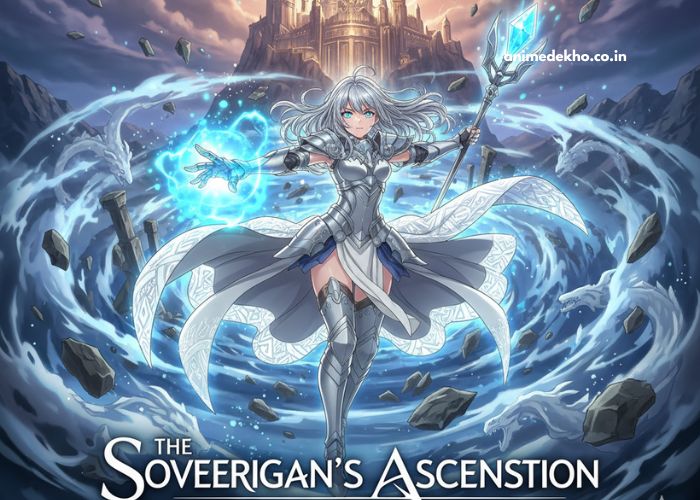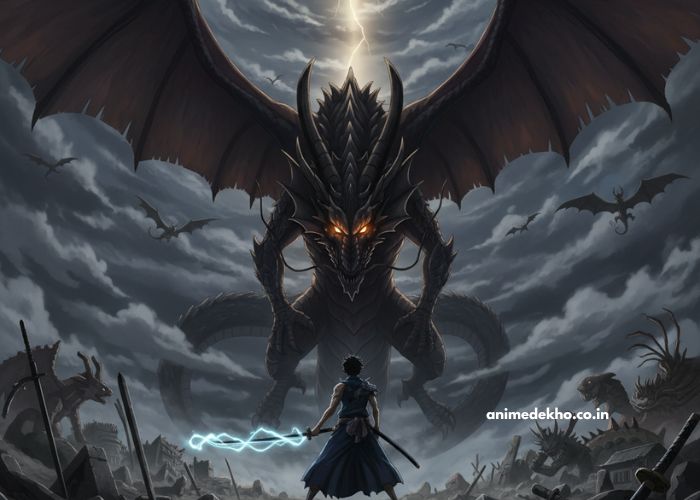| Title | Rascal Does Not Dream of Bunny Girl Senpai |
|---|---|
| Episode No. | 1 (Mai Sakurajima Arc begins) |
| Release Date | October 4, 2018 |
| Genre | Romance, Drama, Supernatural, Slice of Life |
| Main Characters | Sakuta Azusagawa, Mai Sakurajima |
| Theme | Adolescence Syndrome, Invisibility, Isolation |
| Notable Scene | Sakuta sees Mai in a bunny girl costume, unnoticed by others |
| Studio | CloverWorks |
Rascal Does Not Dream of Bunny Girl Senpai is one of the most unique anime adaptations of recent years. Based on Hajime Kamoshida’s light novel series, the anime combines teenage romance, emotional struggles, and supernatural phenomena. Its captivating storytelling and deep character development make it stand out among modern slice-of-life and romance anime. This episode introduces audiences to the intriguing case of Mai Sakurajima, a popular actress whose sudden disappearance from people’s awareness sparks the central mystery.
Story Overview
The episode begins with Sakuta Azusagawa, a high school student known for his blunt personality and mysterious scar, noticing something strange in the school library. He spots Mai Sakurajima, a famous actress and senior at his school, dressed in a bunny girl costume. What shocks him is not her outfit but the fact that nobody else can see her.
This bizarre phenomenon, known as Adolescence Syndrome, becomes the central theme of the series. It’s a supernatural condition that manifests during puberty, often linked to emotional struggles or psychological issues. In Mai’s case, her insecurities and desire to escape the pressures of fame are causing her existence to fade from people’s perception.
Character Highlights
-
Sakuta Azusagawa: He may seem sarcastic and indifferent, but his determination to help Mai makes him one of the most likable male protagonists. His character balances humor with sincerity, making his interactions engaging.
-
Mai Sakurajima: As the titular “Bunny Girl Senpai,” Mai represents the struggles of growing up in the public eye. Her loneliness and hidden pain create a complex character who resonates with audiences.
-
Supporting Characters: Though the episode focuses mainly on Sakuta and Mai, future arcs expand to include other characters who experience their own forms of Adolescence Syndrome.
Themes and Symbolism
This episode is not just about romance or comedy it’s layered with profound themes:
-
Invisibility and Isolation: Mai’s gradual disappearance symbolizes the loneliness that comes from feeling ignored or overlooked by society.
-
Adolescence Struggles: The supernatural elements mirror real-life teenage insecurities, such as identity crises, fear of rejection, and the pressure to succeed.
-
Empathy and Connection: Sakuta’s willingness to understand Mai’s struggles highlights the importance of compassion in relationships.
These themes resonate strongly with viewers, making the anime not only entertaining but also thought-provoking.
Visuals and Sound
The anime’s visuals are clean and emotionally expressive, capturing subtle details like Mai’s expressions of vulnerability and Sakuta’s quiet determination. The use of the bunny girl costume is symbolic it’s eye-catching, yet it contrasts with her growing invisibility, reinforcing the theme of being noticed versus being ignored.
The soundtrack enhances the mood, blending calm background scores with emotionally charged pieces. The opening and ending songs quickly became fan favorites, complementing the show’s heartfelt narrative.
Why This Episode Stands Out
The debut episode of Rascal Does Not Dream of Bunny Girl Senpai sets a perfect tone for the series. It balances humor, romance, and supernatural intrigue while immediately pulling the audience into Sakuta and Mai’s emotional world. Unlike typical rom-com anime, this show dives deeper into psychological themes, giving it a unique edge.
Audience Reception
Fans and critics have praised this episode for its originality and depth. Many describe it as a refreshing blend of heartfelt storytelling and supernatural mystery. Its ability to mix real-life adolescent struggles with fantasy elements resonates particularly with young adults.
Conclusion
Rascal Does Not Dream of Bunny Girl Senpai isn’t just another school romance anime it’s a thoughtful exploration of human emotion and connection. The first episode introduces a compelling mystery while laying the groundwork for emotional character arcs that follow. With its strong themes, relatable struggles, and heartfelt romance, this manhua-inspired anime continues to win the hearts of viewers worldwide.




